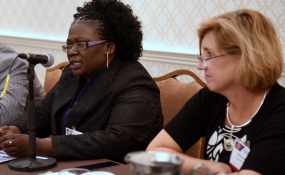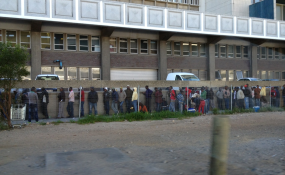Pretoria — The City of Cape Town says plans of potentially partnering with the private sector to create a short-term emergency water supply using desalination, storm water capture or aquifer extraction are progressing well.
City’s Mayoral Committee Member for Informal Settlements, Water and Waste Services; and Energy, Xanthea Limberg, said that Monday was the closing date for responses in terms of the Request for Information to the private sector, which the city issued to see how partnerships can help with short-term emergency supply schemes.
“All submissions will be analysed from this week onwards. More information on the submissions received and the future processes will be made available at the appropriate time,” Limberg said.
Limberg said this was part of the city’s ongoing proactive drought management interventions, along with increasing the large-scale pressure reduction programmes across Cape Town to force down consumption.
“Other emergency and high-user interventions are underway,” she said.
Recent rain made little difference
Limberg warned that the recent rain has made little difference and urged water users to keep saving.
According to Limberg, the city’s dam storage levels are currently at 25.4% but useable water is only at approximately 15.4% which is very low for this time of the year.
“Collective water usage is 619 million litres per day. This is 119 million litres above the new target of 500 million litres of collective water usage under Level 4b water restrictions,” Limberg said.
She also noted that since 6 June 2017 when dam storage levels were at 19.4%, the city’s dam storage levels have only increased by 6%.
The city requires all water users to use less than 87 litres of water per person per day in total, irrespective of whether they are at home, work or elsewhere.
“We encourage friends, neighbours, families and colleagues to join efforts and to see how they can brainstorm new ways of saving water to bring water usage down even further to below 87 litres of water in total per person per day, wherever they are. Peer-monitoring could also be a good way to keep motivation levels high,” Limberg said.
For information on how to adhere to the less than 87-litre usage requirement, residents should please visit the water restrictions page on the city’s website: www.capetown.gov.za/thinkwater
Residents can also contact the city via email to water@capetown.gov.za for queries or to report contraventions of the water restrictions (evidence should be provided to assist the city’s enforcement efforts), or they can send an SMS to 31373.
The city reassured that water supplied by the city remains safe to drink and is tested in accordance with the most rigorous safety standards.










